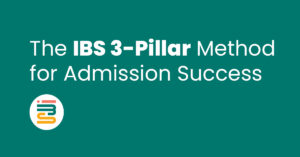When looking for the cheapest universities in Canada without IELTS for Nigerian students, it’s essential to understand the alternatives and requirements.
Many Canadian universities offer affordable education without the need for an IELTS score, making it easier for Nigerian students to study abroad.
This article will guide you through the available options, alternative proficiency exams, application processes, and more.
Read Also: Schools in canada without application fees
Universities that Don’t Require IELTS
Several universities in Canada accept students without the IELTS score. Instead, they offer alternative methods to prove English proficiency, making it easier and more affordable for international students to apply.
Cambrian College
Cambrian College offers a range of affordable programs for international students. Instead of IELTS, they accept TOEFL or other equivalent English proficiency tests. With low tuition fees and flexible admission criteria, it’s a popular choice for Nigerian students.
Read Also: Why move to Canada?
Brock University
Brock University provides quality education at a reasonable cost. They accept students who have completed their previous education in English or provide alternative proficiency tests like TOEFL, PTE Academic, or CAEL.
Curious about the advantages of pursuing your studies overseas? Reach out to IBS Consulting and book your FREE consultation to learn more!
Book Your Free Consultation
University of Saskatchewan
The University of Saskatchewan is renowned for its diverse programs and affordable tuition fees. They accept international students without IELTS if they can provide evidence of prior education in English or alternative test scores.
Concordia University
Concordia University in Montreal is another excellent option. They offer various undergraduate and postgraduate programs and accept TOEFL, PTE Academic, or CAEL as alternatives to IELTS.
Read Also: Moving to Canada
University of Regina
The University of Regina is known for its low tuition fees and strong support for international students. They accept students who have studied in English-speaking countries or have taken alternative English proficiency exams.
Read Also: Canadian scholarships for Nigerian students
Alternative English Proficiency Exams
If you’re looking to study in Canada without taking IELTS, several other exams can demonstrate your English proficiency. Below are some of the exams.
TOEFL
The Test of English as a Foreign Language (TOEFL) is widely accepted by Canadian universities as an alternative to IELTS. It assesses your ability to use and understand English at the university level.
PTE Academic
The Pearson Test of English (PTE) Academic is another alternative. It measures your English skills through tasks that reflect real-life academic and general English usage.
Read Also: Canada visa requirements for Nigerian citizens
CAEL
The Canadian Academic English Language (CAEL) assessment is designed specifically for international students applying to Canadian universities. It evaluates how well you can use English in a Canadian academic context.
MELAB
The Michigan English Language Assessment Battery (MELAB) is another option. It’s designed for advanced English learners and assesses listening, reading, writing, and speaking skills.
Read Also: Best courses to study in canada for Nigerian students
CanTEST
The Canadian Test of English for Scholars and Trainees (CanTEST) is accepted by several Canadian universities. It measures your proficiency in English through a series of academic tasks.
Interested in learning more about the benefits of studying abroad? Call IBS Consulting to schedule a FREE consultation right away!
Book Your Free Consultation
Requirements for Universities Without IELTS
Even if IELTS is not required, there are still specific requirements you must meet to gain admission to these universities.
Minimum Academic Qualifications
You must meet the minimum academic qualifications set by the university for the program you are applying to. This typically includes a high school diploma for undergraduate programs or a bachelor’s degree for postgraduate programs.
Read Also: Cost of studying in canada for Nigerian students
Proof of English Proficiency Through Alternative Exams
While IELTS might not be necessary, you will need to provide proof of English proficiency through alternative exams such as TOEFL, PTE, CAEL, MELAB, or CanTEST.
Letter of Recommendation
Most universities require at least one letter of recommendation from a teacher or academic advisor. This letter should highlight your academic achievements and potential for success in a university setting.
Read Also: How much is canada student visa fee in Nigeria
Personal Statement
A personal statement is often required. This is your opportunity to explain why you want to study at the university and how your background and experiences make you a suitable candidate.
Application Process
The application process for Canadian universities involves several steps. And these steps can be broken down into the following.
Documents Required
You’ll need to gather several documents for your application, including:
– Academic transcripts
– Proof of English proficiency
– Letters of recommendation
– Personal statement
– Passport copy
– Financial documents
Read Also: Requirements to study in Canada for Nigerian students
Application Deadlines
Each university has its own application deadlines. It’s crucial to check these dates well in advance and ensure you submit your application on time.
Application Fees
Most universities require an application fee, which can range from CAD 50 to CAD 150. Ensure you budget for this expense when planning your application.
Decision Notification Process
After submitting your application, universities will review your documents and notify you of their decision. This process can take several weeks, so be patient and monitor your email for updates.
Read Also: Cheap universities in canada for Nigerian Students
>Contact us
Program Options
Canadian universities offer a variety of programs for international students. These programs include undergraduate programs, master’s programs, etc. Let’s have a brief look at them.
Undergraduate Programs
These are bachelor’s degree programs typically lasting three to four years. They cover a wide range of disciplines, from arts and humanities to science and engineering.
Master’s Programs
Master’s degree programs are available for students who have completed an undergraduate degree. These programs usually last one to two years and offer specialized education in a specific field.
Vocational or Skills-Based Programs
For students interested in practical skills, vocational programs are an excellent option. These programs provide hands-on training in fields like technology, healthcare, and business.
Read Also: Study in canada from Nigeria
Cost of Attendance
It is crucial to research the cost of attendance when you are planning your studies in Canada. Here, we’ll talk about some of the fees you will be paying.
Tuition Fees for Different Programs
Tuition fees vary depending on the program and university. On average, undergraduate programs can cost between $7,000 and $20,000 per year, while master’s programs can range from $10,000 to $25,000 per year.
Living Expenses
Living expenses in Canada include accommodation, food, transportation, and personal expenses. On average, you should budget between $10,000 and $15,000 per year for living costs.
Read Also: How To Study In Canada From Nigeria
Other Additional Costs
Additional costs can include health insurance, textbooks, and recreational activities. These can add up to $1,000 to $2,000 per year.
Funding Your Education In Canada
There are several ways to fund your education in Canada and make it more affordable. These ways include scholarships, grants, government loans and on-campus jobs.
Scholarship Opportunities
Many Canadian universities offer scholarships for international students. These can significantly reduce the cost of tuition and living expenses. Scholarships are often merit-based, so maintaining good academic performance is crucial.
Read Also: Moving to Australia from canada
On-Campus Jobs
International students in Canada are allowed to work on campus without a work permit. These jobs can help cover part of your living expenses.
Government Loans
Some countries, including Nigeria, offer government loans or financial aid to students studying abroad. Check with local authorities for available options.
Post-Study Work Options
Canada offers several opportunities for students to work after graduation.
Post-Graduation Work Permit
The Post-Graduation Work Permit (PGWP) allows students who have graduated from a designated learning institution to work in Canada for up to three years. This is a great way to gain valuable work experience.
Permanent Residency Pathways
Graduates may also be eligible to apply for permanent residency through various immigration programs, such as the Express Entry system.
Further Education Options
After completing a degree, students can choose to pursue further education, such as another degree or a specialized certification, to enhance their career prospects.
Read Also: Can canadians work in the US
Conclusion
Choosing to study at the cheapest universities in Canada without IELTS for Nigerian students can be a smart and economical decision for Nigerian students. With a range of universities offering affordable education and alternative English proficiency tests, the dream of studying in Canada is within reach.
If you’re ready to take the next step, book a free consultation to discuss your options and get specific advice on the application process. Come work with us and make your educational journey to Canada a success!
Frequently Asked Questions
Can I study in Canada without IELTS?
Yes, many Canadian universities accept alternative English proficiency tests or offer conditional admissions.
What are the cheapest universities in Canada for international students?
Universities like Cambrian College, Brock University, and the University of Saskatchewan are among the most affordable options.
How can I prove my English proficiency without IELTS?
You can take alternative exams such as TOEFL, PTE Academic, CAEL, MELAB, or CanTEST.
Are there scholarships available for Nigerian students in Canada?
Yes, many Canadian universities offer scholarships specifically for international students, including those from Nigeria.
What is the Post-Graduation Work Permit (PGWP)?
The PGWP allows graduates from Canadian institutions to work in Canada for up to three years, gaining valuable work experience.
By carefully following this comprehensive guide, Nigerian students can successfully apply to some of the cheapest universities in Canada without the need for IELTS, ensuring a smooth and cost-effective transition to studying abroad. For more personalized guidance, don’t hesitate to book a free consultation.





